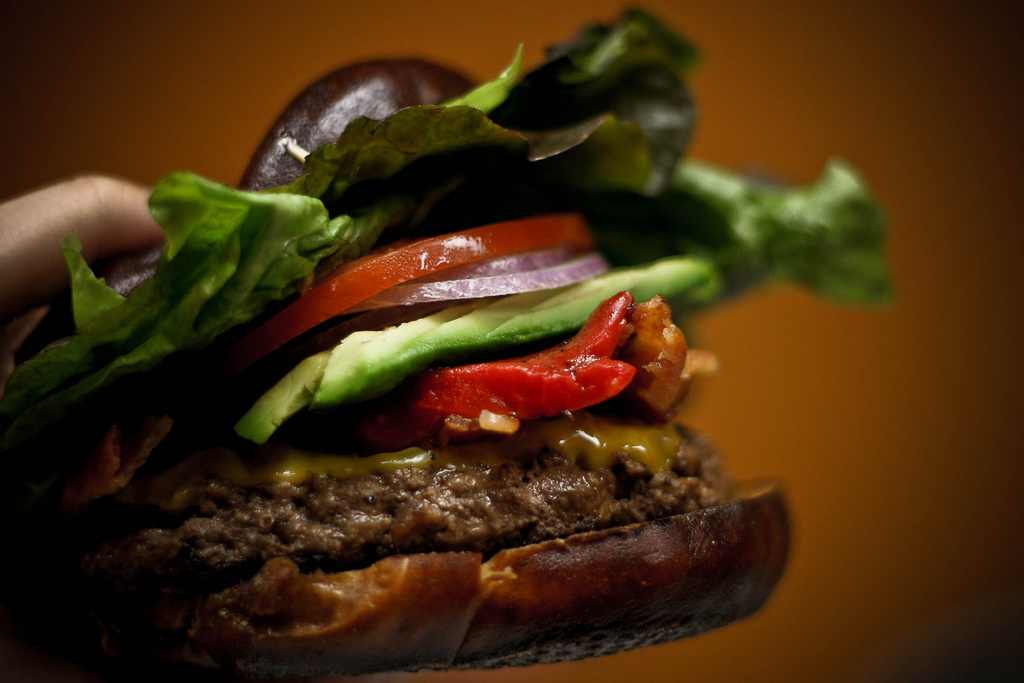What happens if the meat in your burger or brisket doesn’t come from one of the usual sources?
What do you call it if it’s meat grown in a lab – not out on the range somewhere? As science fiction increasingly becomes food fact, these labels can matter a lot.
And while lab-grown meat isn’t quite ready for the dinner table, its proponents are already pushing to call it “clean meat.” That has some ranchers – who prefer the label “artificial meat” – riled up.
John Lang, chair of the sociology department at Occidental College and author of the book, “What’s So Controversial About Genetically Modified Food,” sees the debate as a clash between supporters of “traditionally-raised agriculture and beef products” and advocates for “environmental and social responsibility.”
“So in other words,” Lang says, “by calling it ‘clean meat’ … they’re capitalizing on this idea that it is pure, which puts it in contrast to traditional agriculture and livestock practices. … It allows them to say, ‘We’re meeting a social responsibility.’”
“It also connotes clean environmentalism,” Lang says. “People have argued that, by introducing this term ‘clean,’ which is a nebulous definition, it adds a moral dimension there that would not be present in other things. And that’s where it’s a little dissimilar to some of the things with genetically-modified food.”
“Clean meat” isn’t the only term the new industry is considering.
“’[B]iotechnology’ is probably the most scientifically-precise term, and brings up certain fairly positive images,” says Lang. “The term ‘genetic modification’ is one that industry had for a very long time fought against, because it had such negative connotations.”
The U.S. isn’t the only country thinking about the importance of naming.
“[T]here’s a company in the Netherlands, I believe, that’s started to use the term “eco-protein,” which … seems a little more neutral, or at least wearing its own social leanings right on its label there,” Lang adds.
Lang thinks a more neutral term would be “laboratory-grown” meat, but he says there may never be an agreed-upon solution.
“Food is political, and food is social,” Lang says. “A lot of the debates that we have about what is appropriate and what is the right thing to do – these are not necessarily scientific questions or even best practice questions. These are often moral and political issues, and social issues.”
Still, Lang doesn’t see packages labeled “clean meat” hitting stores any time soon.
“Would it be actually labeled as something distinct? As we saw with genetically-modified food, this has been a debate for more than 20 years, and it’s still, as of this day, unsettled in the United States. That it will dominate super markets and be available to most consumers? I really don’t think so. The existing system of agriculture and raising meat is tremendously large, and has tremendous power – throughout not just the United States but throughout the world.”















